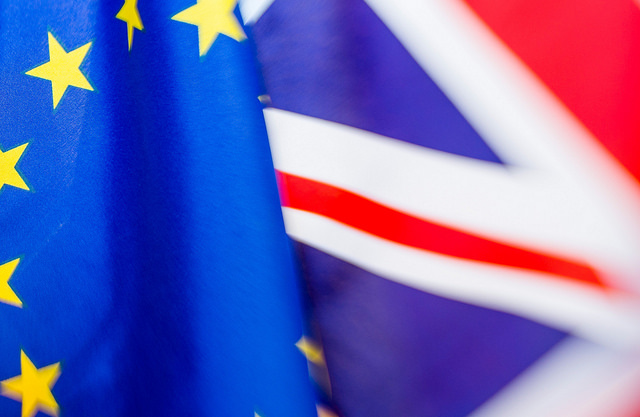Article 50 triggered: the challenges ahead for science and the environment
Today, the Prime Minister has written to the European Council to formally declare the UK’s intention to leave the European Union, triggering Article 50 of the Lisbon Treaty.

The letter has set the clock ticking on a two year period of negotiation as the UK and the EU thrash out the terms of our departure. While this window can be extended by unanimous approval, if negotiations remain on track, by the end of March 2019, the UK will no longer be a member of the EU.
In the words of Brexit Secretary David Davis, the UK is “on the threshold of the most important negotiation for this country in a generation”. The withdrawal negotiations will cover a huge amount of ground, from the cost of the “divorce bill” to the terms of any new trade deal, and the extent of our future access to EU programmes. So what happens now? How will it affect science and the environment? And how will we be engaging with this process?
Science: maintaining collaboration and access to talent
The Government used its recent Brexit White Paper to identify high level priorities for the exit negotiations, and encouragingly identified maintaining our standing as a leader in science and innovation as a key goal.
Two aspects of the Brexit negotiations will be crucial to achieving this aim. First, any new immigration system should maintain and enhance the UK’s ability to retain and attract the best staff and students from the widest possible global talent pool. Securing the right to remain of all EU nationals currently working and studying in the UK – some 16% of academics and 14% of postgraduate students – is an essential first step. Second, the Government should aim to negotiate the best possible access to European funding programmes and collaborative structures that provide vital support for UK science, and environmental research in particular.
Environment: transferring legislation and upholding standards
For environmental protection and legislation, one of the most important elements of the Brexit process will be the forthcoming “Great Repeal Bill”, more details of which will be released tomorrow. The Bill will repeal the European Communities Act, but will also attempt to provide regulatory certainty by transferring all current EU legislation onto the UK statute book. The House of Commons Library calls the Bill “potentially one of the largest legislative projects ever undertaken in the UK”.
It is vital that the Great Repeal Bill fully transfers the body of EU environmental legislation, including guiding principles, into UK law, providing a solid base for future improvements. This is a complex task. Andrea Leadsom, the Environment Secretary, has indicated that between a quarter and a third of environmental legislation cannot be simply transferred – for example where legislation refers to EU institutions. Outstanding questions that need to be resolved include how environmental standards will be enforced and scrutinised outside the jurisdiction of the European Court of Justice and the European Commission, and how devolved areas of competence – which include environmental and agricultural policy – will be addressed. Some have suggested that a new Environment Act will be required to ensure that any potential legislative gaps are filled.
New legislation is likely in two policy areas profoundly linked to the environment – agriculture and fisheries – where the UK will be developing its own approach outside the EU Common Agricultural Policy and Common Fisheries Policy. Yet these policies will also be strongly affected by the Brexit negotiations; for example the terms of any trade deal will have a substantial impact on UK agriculture, with potential environmental consequences.
Making ecology count
As the UK Government proceeds with the Brexit negotiations, it is vital that the ecological community makes itself heard by engaging proactively with the debate. Since the referendum, we have held two high profile events on the consequences of Brexit for science and the environment, met with the Brexit Minister to discuss our concerns, and successfully informed a number of Parliamentary inquiries. We have been, and will continue to work in partnership with a wide range of partners in order to communicate our messages, including Wildlife and Countryside Link, the Campaign for Science and Engineering, the Royal Society of Biology and other environmental learned societies and professional bodies.
As the Brexit process unfolds in all its complexity, we will be strengthening this engagement through the work of our new Brexit Policy Working Group. This group will be steering our work through developing events, briefings and position statements, and more, on priority topics including agri-environment, species and habitat protection, invasive species and marine conservation. This work will require the expertise and active participation of a wide range of our members – join our Brexit Mailing List now to find out about upcoming opportunities, or get in touch to tell us your priorities.
We are an open, inclusive, society, committed to international collaboration – as demonstrated by our upcoming Joint Annual Meeting. Cross-border collaboration is essential for excellent science and effective environmental protection; it is essential that this is recognised in the UK’s approach to the Brexit negotiations.
Like what we stand for?
Support our mission and help develop the next generation of ecologists by donating to the British Ecological Society.